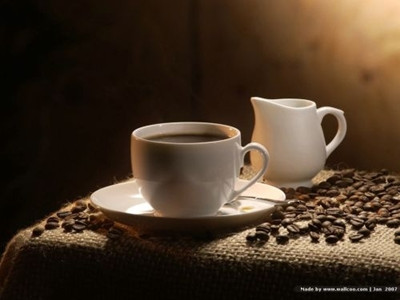Cup of coffee after a night on the town to sober up? Well, a mouse study finds that caffeine does not counter the intoxicating effects of alcohol. It merely masks the inebriation, which could lead to poor decisions. Because drinkers might think they’ve sobered up, whereas they could just be more wired. The study is in the journal Behavioral Neuroscience.
宿醉之后喝杯咖啡醒醒酒如何?別忙著倒咖啡,一項在小白鼠身上進行的實驗表明,咖啡在抑制醉酒反應方面并無良效。咖啡因無法讓人醒酒,卻有可能幫倒忙。因為那些喝過咖啡的醉漢們會認為自己已經清醒,而事實上正好相反。這項研究發表在《行為神經系統科學》期刊上。
 Researchers gave mice doses, separately and together, of caffeine and alcohol. Tests then gauged how well the mice learned how to avoid part of a maze that appeared dangerous because of bright lights or loud sounds. And mouse anxiety was tested, through their willingness to be in an open area.
Researchers gave mice doses, separately and together, of caffeine and alcohol. Tests then gauged how well the mice learned how to avoid part of a maze that appeared dangerous because of bright lights or loud sounds. And mouse anxiety was tested, through their willingness to be in an open area.
研究者們讓一組小白鼠攝入酒精,另一組則既攝入酒精又攝入咖啡因。然后,研究者們將小白鼠放入一個迷宮當中,并用強光和噪聲作為危險的信號。研究者們想看看這些小白鼠學習避開這些警示信號的能力如何。同時這些小白鼠的警惕性也被納入考量范圍,其方法是將小白鼠放置在空曠地帶并觀察它們的反應。
No surprise, drunk animals were more relaxed and had less anxiety, and had trouble learning to avoid possible danger. Then the mice got alcohol and caffeine together. And the caffeine did not improve a drunk animal’s ability to learn. So the mouse is more relaxed but less able to avoid threats—if it had a tiny car available it probably would have thought it was “fine, I’m fine enough to drive it.”
結果并不意外,醉酒的小白鼠顯得放松而缺乏警惕,它們無法學會如何避會那些危險的信號。那么既攝入過酒精又攝入過咖啡因的小白鼠表現如何呢?咖啡因并未提高這些小白鼠的學習能力。這些小白鼠和之前的那些一樣缺乏警惕,無法學會如何避開危險信號。而如果有那么一輛可供老鼠駕駛的微型汽車,這些攝入過咖啡因的小白鼠們可能就會想:“我已經醒酒了,我能開車。”
來源:可可英語 http://www.ccdyzl.cn/hangye/201112/164996.shtml Researchers gave mice doses, separately and together, of caffeine and alcohol. Tests then gauged how well the mice learned how to avoid part of a maze that appeared dangerous because of bright lights or loud sounds. And mouse anxiety was tested, through their willingness to be in an open area.
Researchers gave mice doses, separately and together, of caffeine and alcohol. Tests then gauged how well the mice learned how to avoid part of a maze that appeared dangerous because of bright lights or loud sounds. And mouse anxiety was tested, through their willingness to be in an open area.










